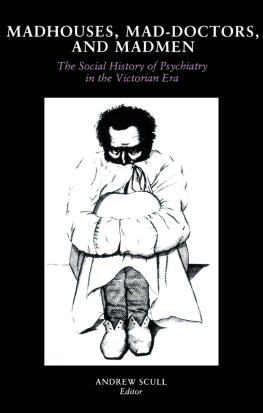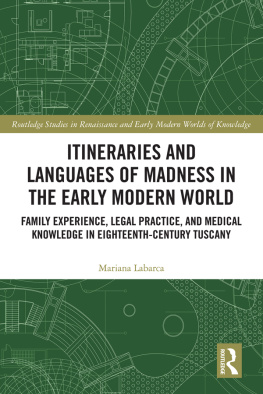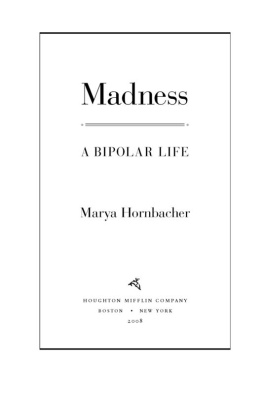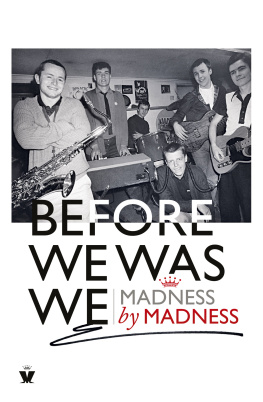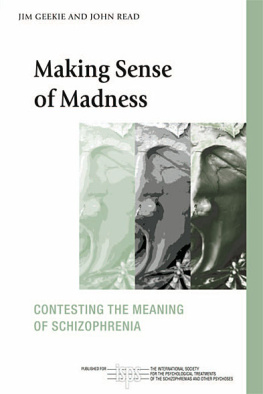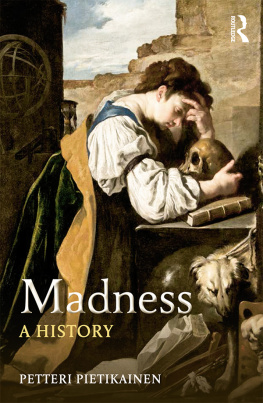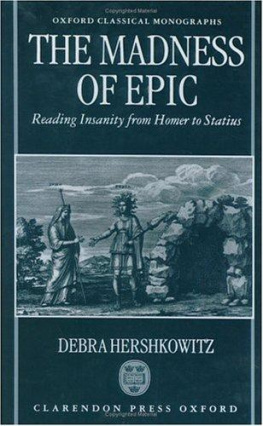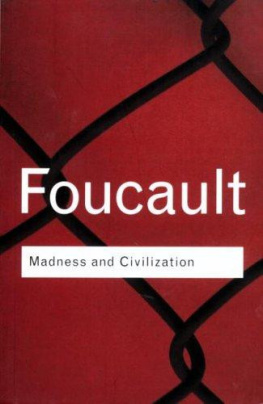Praise for Madness in Civilization
Andrew Sculls fluent mastery of the history of madness has long been established. In this engrossing volume, he gives us the long view of how reason has understood and treated unreason. Aided by a telling and sumptuous array of images, he takes us from ancient Greece, early Christianity and Islam through science, secularization and Freud, to the brain sciences and pharmacopoeias of the present. Its a story filled with good intentions and punctuated by greed. Flashes of wisdom war with cures that are far madder than patients. Some two thousand years of journeying and its unclear whether the chemical asylum weve arrived at is any better than its bricks and mortar precedent. This is history at its best, scintillating in its detail and passionate about a subject that concerns us all.
Lisa Appignanesi, author of Mad, Bad and Sad: A History of Women and the Mind Doctors from 1800 to the Present and Trials of Passion: Crimes in the Name of Love and Madness
A wonderful book, fascinating and beautifully written, with Sculls usual verve and erudition. Madness in Civilization explores how ancient and medieval societies coped with psychosis and shows that, brain imaging and psychotropic drugs notwithstanding, modern psychiatry has much to learn from them.
Sylvia Nasar, author of A Beautiful Mind
An engaging, learned and wonderfully thought-provoking history of human efforts to understand and manage those behaviours we call mad. An uncommon combination of learning and accessible writing, I would recommend Sculls admirable book to anyone interested in this most solitary of afflictions.
Charles Rosenberg, Professor of the History of Science, Harvard University, author of Our Present Complaint: American Medicine, Then and Now
Andrew Scull is probably our most knowledgeable and certainly most readable historian of madness. In his new book, the magisterial Madness in Civilization, he presents a panoramic view of the subject thats both clear-eyed and critical. Crisply written, and furnished with a wealth of cultural and clinical reference, this is a great, tragic story.
Patrick McGrath, author of Asylum
Andrew Scull is the premier historian of psychiatry in the Anglophone world, and this book triumphantly demonstrates this. Taking a broad canvas, from antiquity to modernity, Scull dissects what madness has meant to societies throughout history and throughout the world. He writes with passion but humour, has a brilliant eye for a pungent quotation or a telling story, and holds the reader spellbound. This is a compelling book from a master of his craft.
William Bynum, Professor Emeritus of the History of Medicine, University College London, editor of Companion Encyclopedia of the History of Medicine
A work of heroic scholarship, an eloquent overview of the changing theories and treatments of madness from ancient religion, medicine and myth to contemporary neuroscience and psychopharmacology. Scull shows not only how writers, artists and composers have taken madness as a muse, but also how the shifting symbolic forms of unreason are truly part of its history. Compendious and compassionate.
Elaine Showalter, Professor Emeritus, Princeton University, author of The Female Malady
Dr Scull is one of the pre-eminent historians of psychiatry in the world today. There is almost no one else who could write a volume of this kind with the panache he brings to it, the ability to hold both a lay and an academic readership in thrall at the same time and the sense of balance and proportion that comes to some with experience but to others not at all. There is no other volume comparable to this in scope and this is a once in a generation effort.
David Healy, Professor of Psychiatry, Bangor University, author of Pharmageddon
Madness in Civilization is a brilliant, provocative and hugely entertaining history of the treatment and mistreatment of the mentally ill. Packed with bizarre details and disturbing facts, Andrew Sculls book offers fresh and compelling insights on the way medicines inability to solve the mystery of madness has both haunted and shaped two thousand years of culture. Required reading for anyone who has ever gone to a shrink!
Dirk Wittenborn, author of Pharmakon

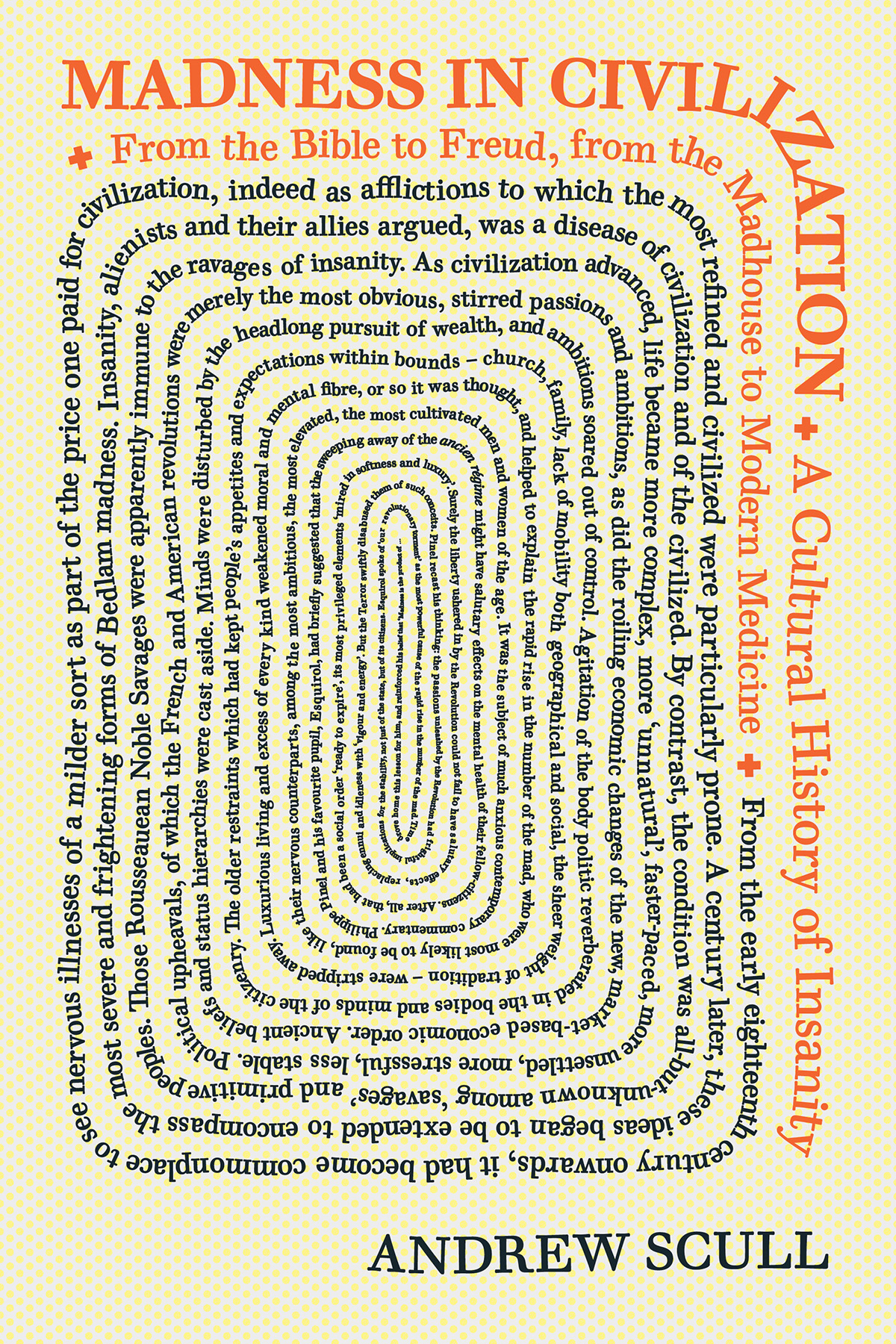
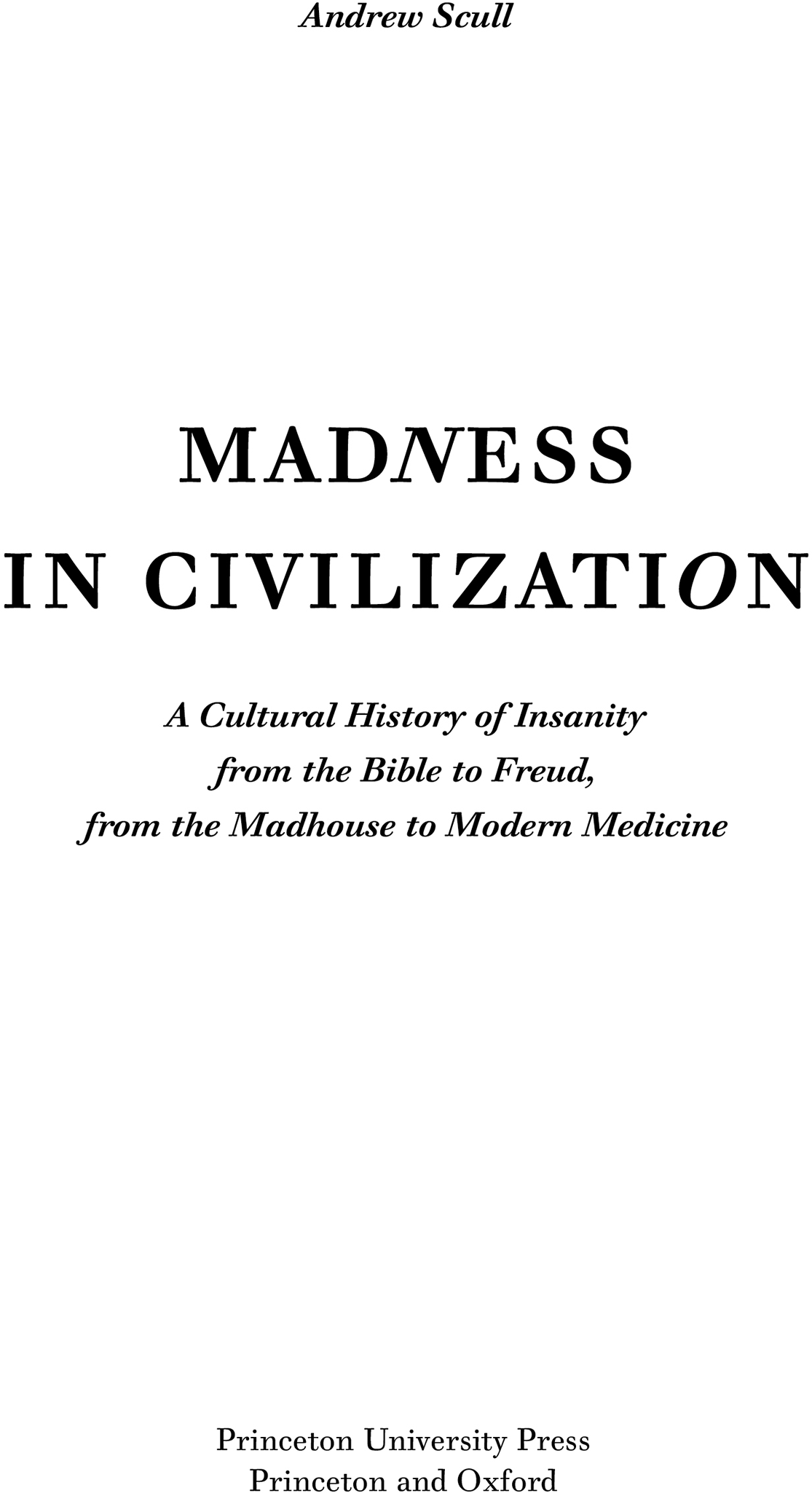
About the Author
Andrew Scull is Distinguished Professor of Sociology and Science Studies at the University of California, San Diego. His books include Hysteria: The Disturbing History, Madhouse: A Tragic Tale of Megalomania and Modern Medicine and Masters of Bedlam: The Transformation of the Mad-doctoring Trade (Princeton). He lives in La Jolla, California.
Published in the United States and Canada in 2015 by Princeton University Press,
41 William Street, Princeton, New Jersey 08540
press.princeton.edu
First published in the United Kingdom in 2015 by Thames & Hudson Ltd,
181a High Holborn, London WC1V 7QX
www.thamesandhudson.com
Madness in Civilization 2015 Andrew Scull
Designed by Karolina Prymaka
All Rights Reserved. No part of this publication may be reproduced or transmitted in any form or by any means, electronic or mechanical, including photocopy, recording or any other information storage and retrieval system, without prior permission in writing from the publisher.
Library of Congress Control Number 2014956046
ISBN 978-0-691-16615-5
For Nancy, and for our grandchildren
born, and yet to be born
Comme quelquun pourrait dire de moi que jai seulement fait ici un amas
de fleurs trangres, ny ayant fourni du mien que le filet les lier.
[As one might rightly say of me, in this book I have just created
a bouquet of other peoples flowers, providing myself only
the thread that holds them together.]
Montaigne
CONTENTS
Acknowledgments
Madness in Civilization is in many ways the product of my more than forty years of work in the history of madness. During that time, I have accumulated more debts to more people than I can possibly list here. Moreover, in this book, I attempt a task of surpassing chutzpah, and in doing so, I am inevitably indebted to the work of countless other scholars a debt that is partially, though inadequately, acknowledged in the notes and bibliography that accompany my text.
However, a number of people have been so extraordinarily kind and generous in helping me during the course of writing this particular book that I am delighted to have the chance to thank them here. Though it is but poor recompense for all they have done for me, I would first like to thank five people who have been so gracious as to read the entire text, and to send me detailed comments and suggestions for improvement: William Bynums knowledge of the history of medicine has few equals, and he has saved me from a multitude of sins, as well as providing much-needed encouragement along the way. My friends Stephen Cox and Amy Forrest have given every chapter close and sympathetic readings. They made numerous penetrating suggestions on matters of style and substance, and did not hesitate to point out where my writing stumbled, or my arguments seemed to be going astray. I cannot thank them enough. Every writer should be lucky enough to have such generous friends. My wonderful editor at Thames & Hudson, Colin Ridler, has been the sort of publisher every author dreams of: responsive, endlessly helpful and full of enthusiasm for the project. His colleague Sarah Vernon-Hunt likewise edited my final draft with exceptional care and attention. In countless ways I have benefited from her marvellous skills as an editor. As all these readers can attest, I can be stubborn, and though in many cases I listened to their sage advice, I sometimes refused to do so. Thus none of them can in any way be held responsible for the errors of commission and omission that remain. They do, however, bear a large measure of credit for whatever virtues my text may possess.
Next page

